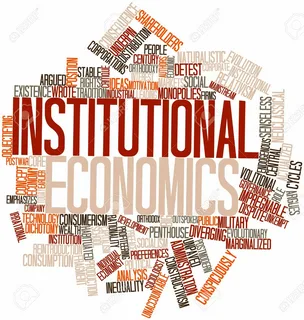This resource is created for term papers downloading and checked papers/
- Преподаватель: Аббас Шуджаат
- Преподаватель: Алнафра Ибрагим
- Преподаватель: Гайнетдинова Анна Андреевна
- Преподаватель: Гладырев Дмитрий Анатольевич
- Преподаватель: Мамман Сулейман Онимиси
- Преподаватель: Пушкарев Александр Александрович
- Преподаватель: Сохаг Кази
- Преподаватель: Турканова Софья Вадимовна
- Преподаватель: Шадурская Мария Михайловна
This course, International Databases and Analytics, is designed to provide a comprehensive understanding of international economic databases and how to analyze them effectively using various data analysis tools. Throughout the course, students will delve into the following key areas:
1. Introduction to International Data Analysis
- Explore the anticipated benefits of learning international database analytics.
- Understand the necessity of international economic databases for research and decision-making.
- Examine the significance of analyzing international economic databases for insights and policy formulation.
2. A Landscape on International Databases
- Identify the primary sources of international economic databases.
- Differentiate between existing international economic databases.
- Learn how to select the most suitable database for specific research needs.
3. Main Instruments for International Economic Databases
- Get acquainted with essential tools like Python, R, and Stata for data analysis.
4. Introduction to Data Analysis with R, Python, and Stata
- Explore key packages for analyzing international economic databases in R.
5. Data Importation from International Databases
- Learn how to import data in R, with practical sessions.
6. Data Cleaning in International Databases
- Understand how to assess data quality.
- Explore techniques for organizing and managing data.
- Learn to identify and handle missing values.
7. Data Manipulation in International Databases
- Study techniques such as scaling, standardization, and normalization.
8. Data Exploration and Analysis
- Conduct exploratory data analysis.
- Compute descriptive statistics.
- Visualize data effectively.
- Handle complex patterns and messy data.
- Recognize patterns within international economic datasets.
9. Data Processing and Analysis
- Engage in data wrangling.
- Explore comparison, correlation, and generalization techniques.
10. Applied International Data Analytics (Machine Learning Project)
- Apply data analysis techniques like hypothesis testing, regression, clustering, and classification to real-world international economics problems.
Project-Oriented Lectures
- Work on projects related to international economics using R.
- Projects may involve topics like international trade statistics, economic performance comparisons, and monetary statistics.
- Преподаватель: Алнафра Ибрагим
Instructor: Shujaat Abbas, Ph.D. A study of the following macroeconomic issues will be provided in the course: unemployment, interest rates and inflation, economic growth and business cycles. The open economy models, problems of government debt in the open economies will be introduced. Both basic and more advanced theoretical models and analytical techniques will be used as tools for giving insights into important
practical issues.
ILO-08 Ability to develop, analyze, evaluate and interpret the socio-economic indicators of the organization, region, country, world economy performance f in order to prepare analytical forecasts and models
- Преподаватель: Аббас Шуджаат
- Преподаватель: Гилёв Денис Викторович
- Преподаватель: Малафеев Никита Сергеевич
Дисциплина входит в модуль «Количественные методы в экономике».
Программа дисциплины «Моделирование стратегического взаимодействия» предназначена для студентов бакалавриата, обучающихся по направлению «Экономика», состоит из 16 лекционных и 32 часов практических занятий. Целью курса является обеспечение студентов-экономистов первоначальными знаниями в области важнейших понятий современной теории игр и привитие навыков моделирования и анализа экономических ситуаций методами теории игр, а также развитие математической культуры.
Понятия и методы теории игр используются в теоретических курсах микроэкономики, макроэкономики и институциональной экономики.
- Преподаватель: Валей Азамат Маратович
- Преподаватель: Гладырев Дмитрий Анатольевич

Professor:Irina Baskakova. The course is designed to give an introduction to the fields of new institutional economics, with a focus both on the basic theory and on contemporary empirical research. We will look on how institutions shape the incentives of economic agents, and how this influences economic outcomes in various contexts. Students will
also study the emergence of institutions, and compare institutionalist theories of economic development with theories that place other factors at the center of their analysis.
ILO-08 Ability to develop, analyze, evaluate and interpret the socio-economic indicators of the organization, region, country, world economy performance in order to prepare analytical forecasts and
models
- Преподаватель: Баскакова Ирина Владимировна

- Преподаватель: Решетникова Ольга Евгеньевна
Professors Team: Dr. Kazi Sohag, Anna Gainetdinova, Suleiman Onimisi Mamman . The objective of this course is to familiarize students with modern methods of econometric methods for analyzing
cross-sectional, time series and panel data in the field of economics, business and social science. This course stresses both the theoretical and the practical aspects of
econometric analysis, concentrating on techniques for validating the economic theory, concepts and hypothesis of the interest to economists. The goal is to help
develop a solid theoretical background in intermediate-level econometrics, the ability to implement the techniques and to critique empirical studies in economics, business and social science. The emphasis is given on gaining practical research skills and implementation of all the methods in modern software such as STATA and Eviews.
ILO-07 Capable of calculating budget, financial and investment business plans and present the results in accordance with Russian and international standards in order to make effective management decisions
- Преподаватель: Мамман Сулейман Онимиси
- Преподаватель: Сохаг Кази
